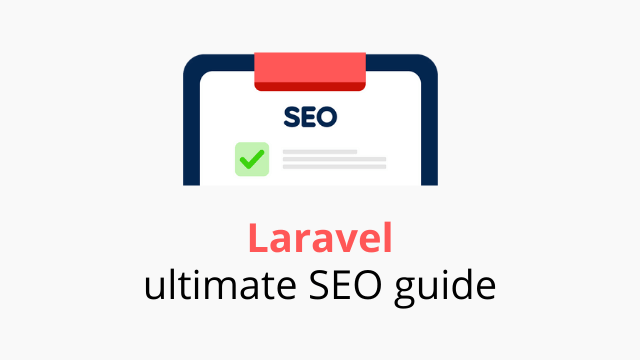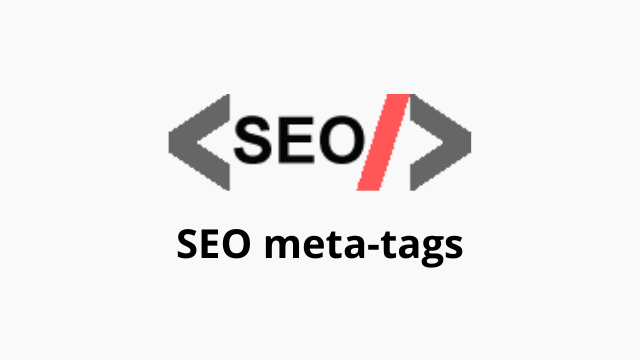Maximizing Your Laravel Website’s Search Engine Potential
This comprehensive guide will show you everything you need to know about Laravel SEO and how to optimize your site for better search engine results.
What is Laravel SEO?
Laravel is a popular PHP web framework that makes building modern, high-performance websites easy. However, building a great website is only half the battle – you must also ensure your site is optimized for search engines. Laravel SEO involves optimizing your website’s content, structure, and metadata to improve its visibility and ranking in search engine results pages (SERPs).
Why Laravel SEO is Crucial for Your Website
SEO, or search engine optimization, is optimizing your website to improve its visibility and ranking on search engines like Google. The higher your website ranks on search engine results pages (SERPs), the more traffic you’ll likely receive. And more traffic means more potential customers, leads, and revenue for your business.
Laravel is a popular PHP framework that enables developers to build high-quality web applications quickly and efficiently. However, having a Laravel website cannot attract traffic and generate leads. It would help if you optimized it for search engines to ensure your website ranks high on SERPs.
Optimize Your Website’s Structure
The first step in optimizing your Laravel website for search engines is ensuring its structure is search-engine friendly. A well-structured website makes it easier for search engine crawlers to understand its content and rank it accordingly.
Use Search Engine Friendly URLs
Your website’s URLs should be search engine friendly, straightforward, and easy to read. Use hyphens to separate words, and avoid using underscores or special characters.
Optimize Your Website’s Navigation
Your website’s navigation should be simple and intuitive, allowing users to find what they want easily. Use quickly give anchor text for your internal links and ensure your website’s hierarchy is clear and easy to understand.
Implement Schema Markup
Schema markup is structured data that helps search engines better understand your website’s content. Implementing schema markup can improve your website’s visibility and ranking on SERPs.
Optimize Your Content
The content on your Laravel website plays a crucial role in its search engine ranking. Here’s how you can optimize your content for search engines.
Conduct Keyword Research
Keyword research is the process of identifying the keywords and phrases that your target audience is searching for. Use keyword research tools like Google Keyword Planner to identify high-traffic, low-competition keywords that you can target.
Use Keyword-Rich Titles and Headings
Your website’s titles and headings should include your target keywords. This helps search engines understand the content of your website and improves its ranking on SERPs.
Write High-Quality Content
Your website’s content should be high-quality, informative, and engaging. Aim to provide value to your target audience and avoid keyword stuffing or thin content.
Optimize Your Images
Images can also play a role in your website’s search engine ranking. Use descriptive file names and alt tags to help search engines understand the content of your images.
Leverage Advanced SEO Techniques
In addition to optimizing your website’s structure and content, you can use several advanced SEO techniques to improve your website’s visibility and ranking on SERPs.
Build High-Quality Backlinks
Backlinks are links from other websites that point to your website. Building high-quality backlinks from authoritative websites can improve your ranking on SERPs.
Monitor Your Website’s Performance
Regularly monitoring your website’s performance can help you identify and fix any SEO issues. Use tools like Google Analytics and Search Console to monitor your website’s traffic, rankings, and search engine visibility.
Use SEO-friendly URLs
Your website’s URL structure is essential for SEO. Use SEO-friendly URLs that describe the page’s content and include your target keywords. For example, instead of using the default Laravel URL structure, which provides for query parameters, use URLs like example.com/blog/ultimate-guide-laravel-seo.
Optimize your meta tags.
Your website’s meta tags are the first thing search engines see when crawling your website. Ensure you have unique and descriptive meta titles and descriptions for each page. Use your target keywords in these tags, but don’t overdo it.
Use header tags
Header tags (H1, H2, H3, etc.) structure your content and tell search engines what the page is about. Use your target keywords in your H1 tag and H2 and H3 tags to break up your content into subheadings.
Conclusion
Optimizing your Laravel website for SEO is essential to rank higher in search engine results pages. Use the techniques outlined in this guide to ensure your website is optimized for search engines. Remember, SEO is an ongoing process, and you should regularly monitor your website’s rankings and make changes as necessary to improve your website’s ranking.
FAQs
Is Laravel good for SEO?
Yes, Laravel is good for SEO. Laravel provides developers with a robust set of tools and features that make optimizing websites for search engines easy. Laravel’s clean, structured code allows search engines to crawl and index pages more efficiently. Additionally, Laravel’s built-in features, such as routing and templating, make creating SEO-friendly URLs and optimized meta tags easy. Overall, Laravel provides developers the tools they need to build websites that rank high in search engine results pages.
How to implement SEO in Laravel?
Implementing SEO in Laravel involves several steps. Here are the key steps to follow:
- Keyword Research – Start by identifying the keywords your target audience is searching for. Use tools like Google Keyword Planner or SEMrush to research keywords relevant to your industry and website.
- On-page optimization – Once you have identified your target keywords, you must optimize your website’s pages. Use your target keywords in your page’s URL, meta title, meta description, header tags, and content. Use Laravel’s blade templating engine to create SEO-friendly HTML and CSS that are easy for search engines to crawl.
- Optimize Images – Use descriptive file names and alt tags for your images that include your target keywords. Compress your images to reduce their file size and improve your website’s load time.
- Internal linking – Use internal linking to link to other relevant pages on your website. Use descriptive anchor text that includes your target keywords when linking to other pages on your website.
- Build Backlinks – Building backlinks from high-authority websites in your industry effectively improves your website’s ranking. Focus on building high-quality backlinks relevant to your industry and avoid spammy link-building tactics.
- Use Laravel’s SEO-Friendly Features – Laravel provides several features that make it easy to create SEO-friendly websites. These features include routing, middleware, blade templating engine, and built-in support for popular SEO packages.
- Test and Monitor – Test your website’s SEO regularly to ensure it’s optimized for search engines. Use tools like Google Analytics and Google Search Console to monitor your website’s performance and make changes as necessary.
By following these steps, you can effectively implement SEO in Laravel and improve your website’s ranking in search engine results pages.





